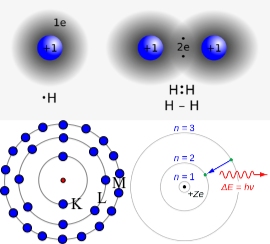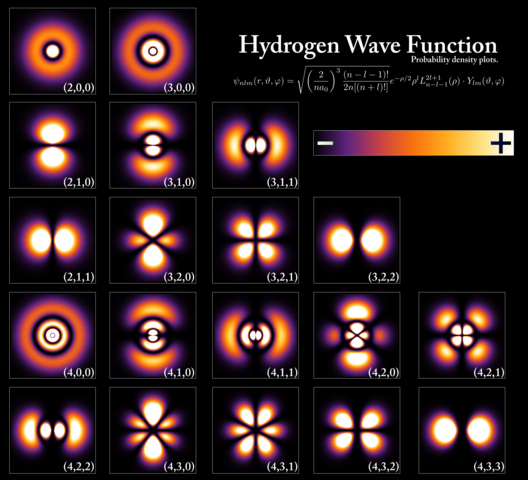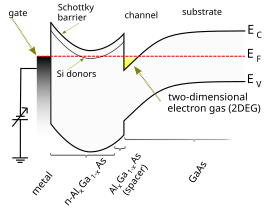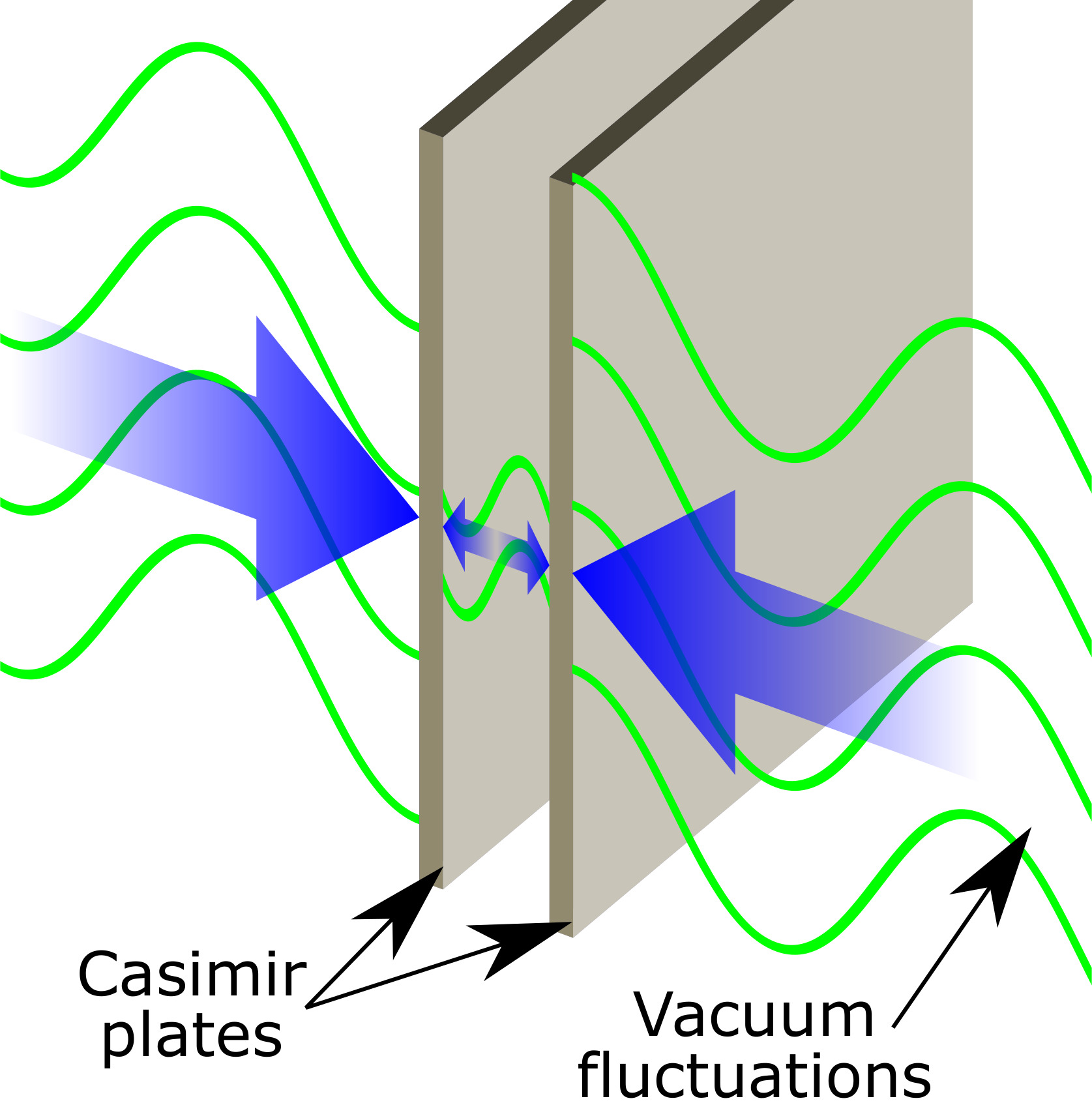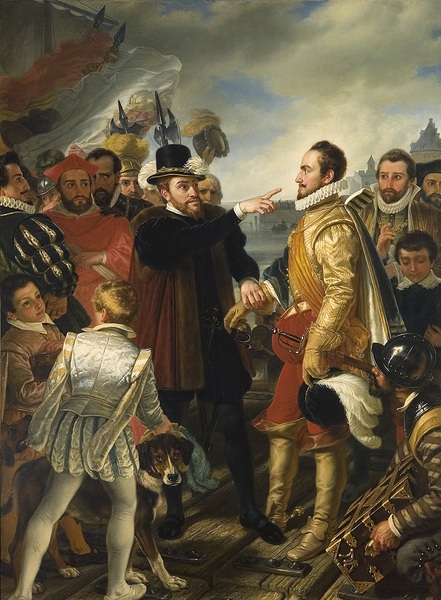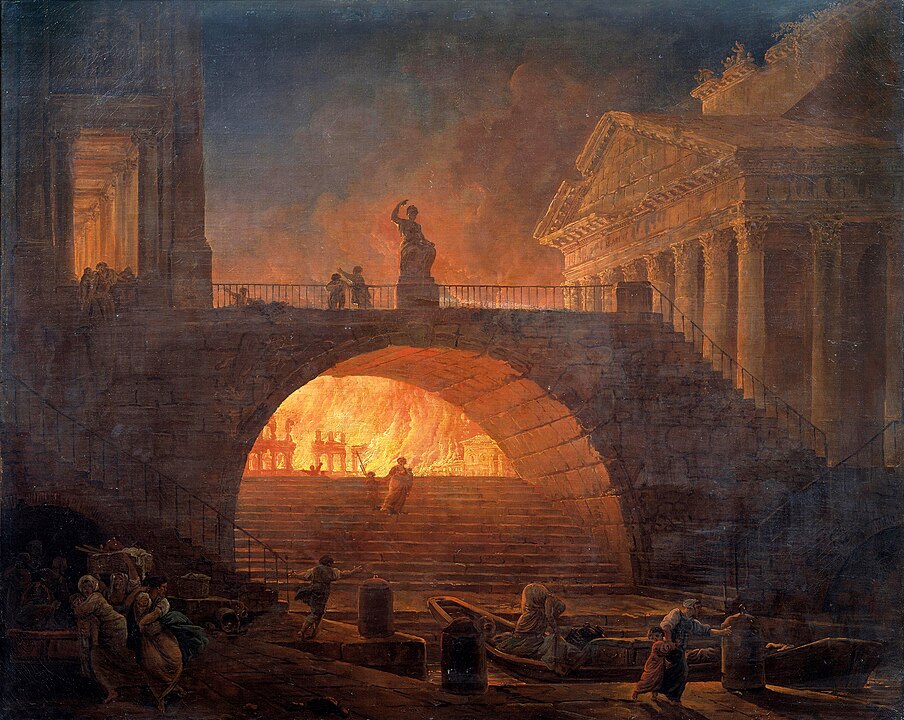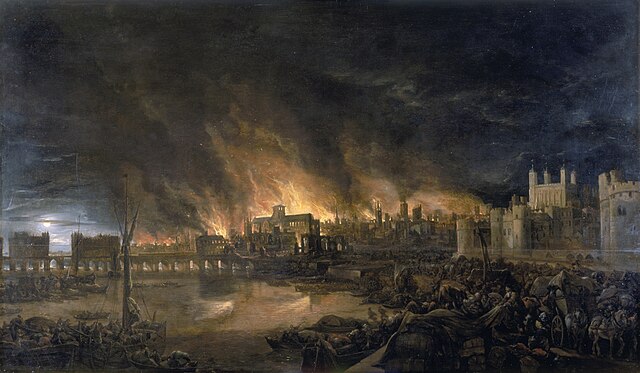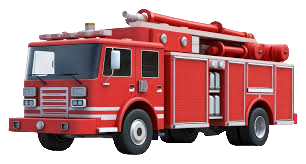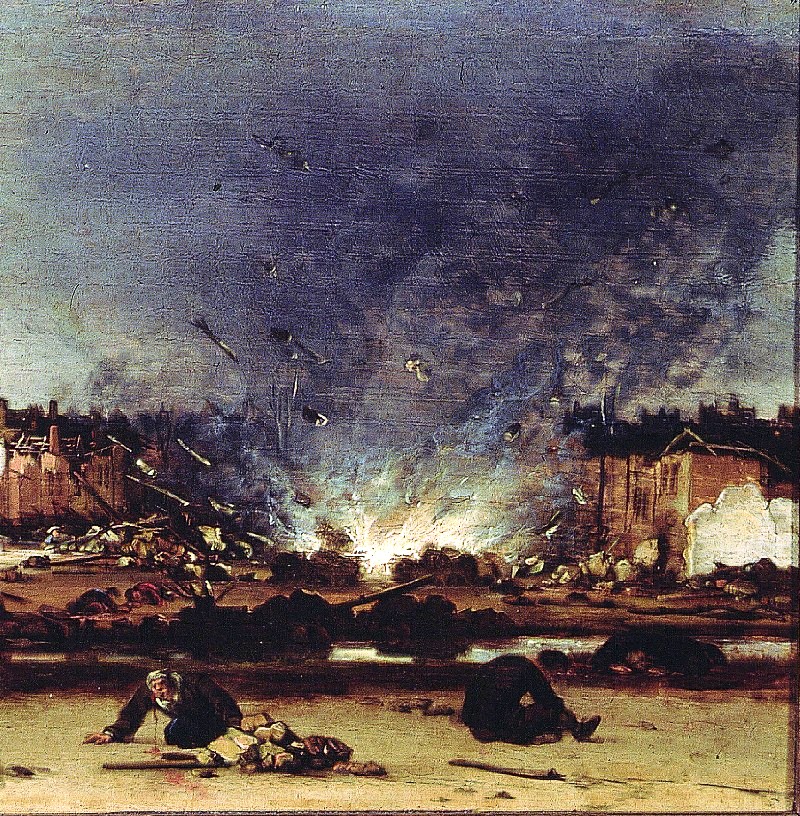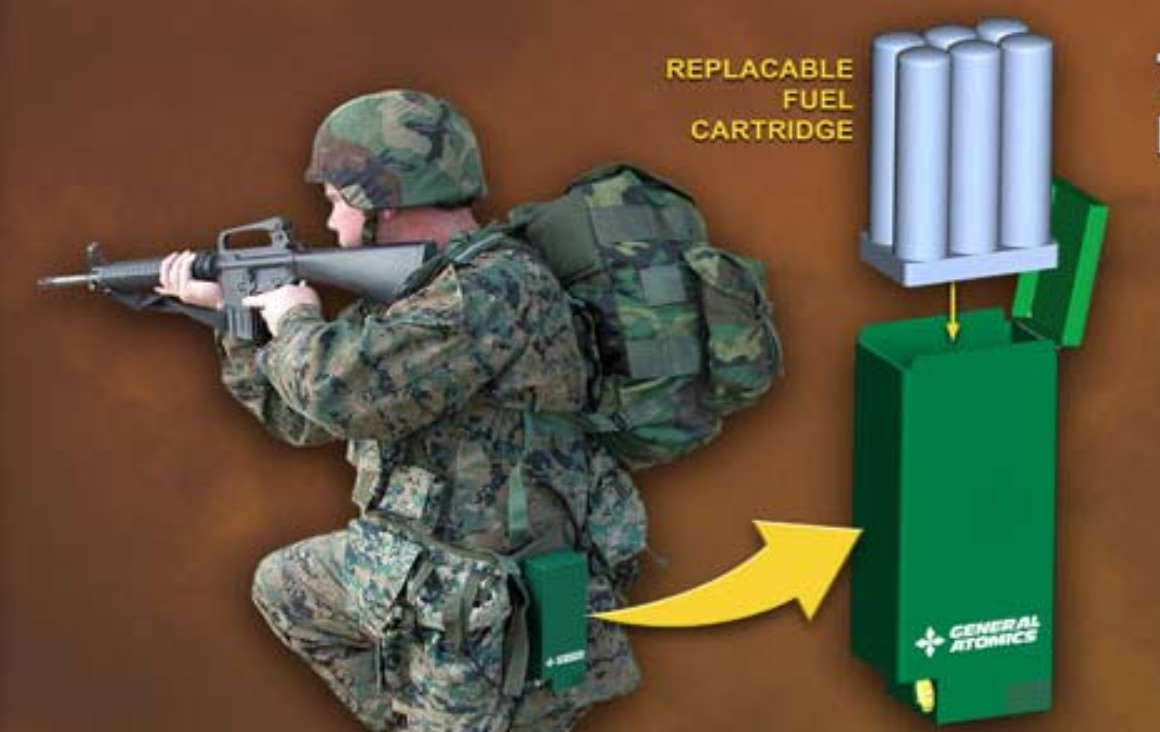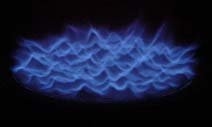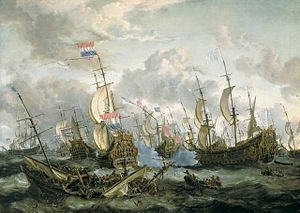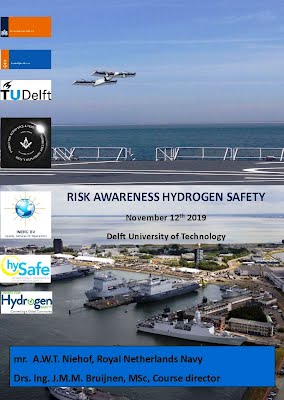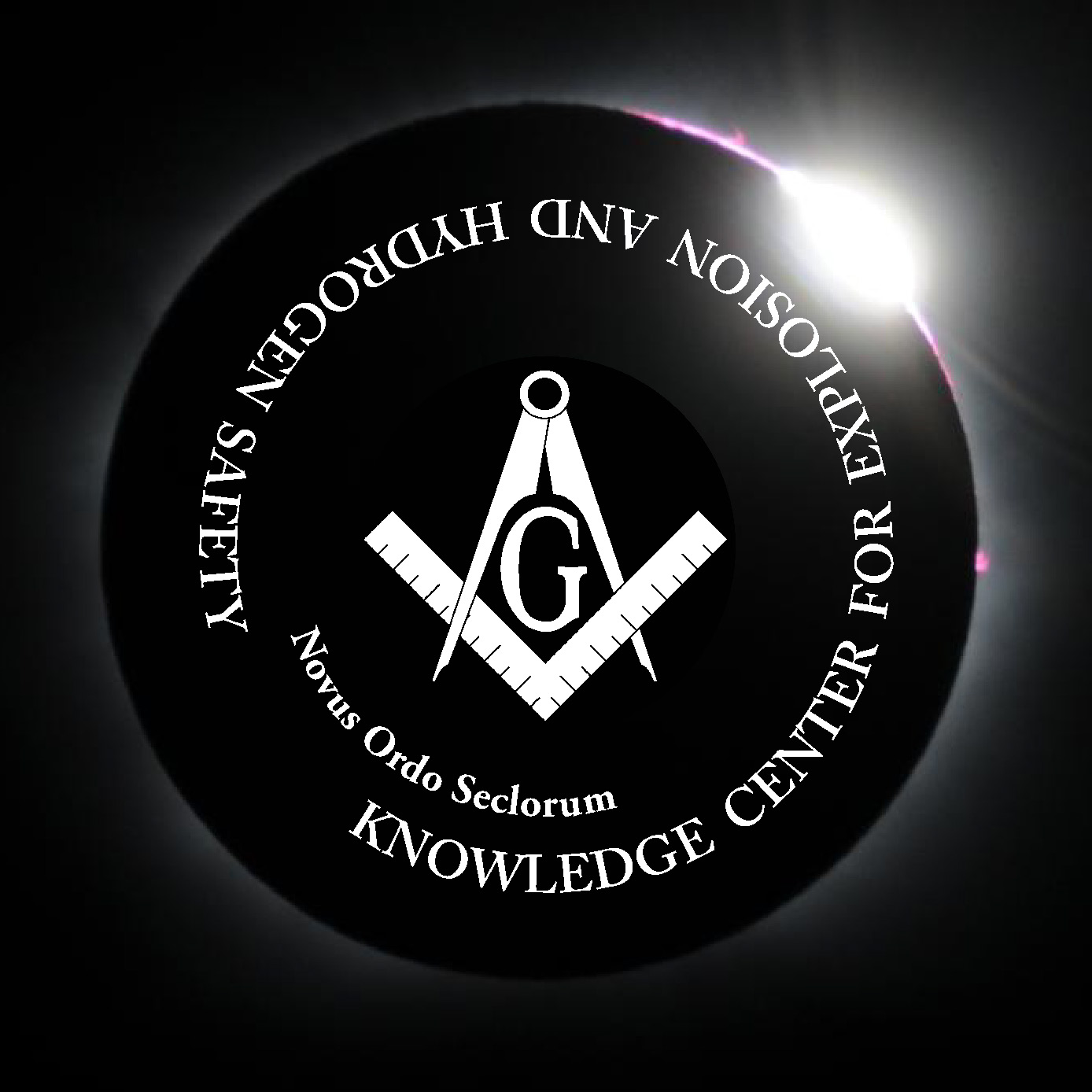Knowledge Center for Explosion and Hydrogen Safety
Contact: kcehs@protonmail.com
The Knowledge Center for Explosion and Hydrogen Safety is a resource dedicated to providing information, research, and best practices related to safety in environments where explosions and hydrogen risks may occur. It typically focuses on educating individuals and organizations about the hazards associated with hydrogen and other explosive materials, offering guidelines for prevention, response, and safety management.
Key components include:
- Research and Development: Conducting studies related to the behavior of explosive substances and hydrogen, methods of containment and control, and innovations in safety technology.
- Training Programs: Offering certification and training for professionals on hazard identification, risk analysis, ATEX, and emergency response in environments with explosive substances or hydrogen systems.
- Safety Standards and Protocols: Establishing guidelines and best practices for handling, storing, and transporting explosive substances and hydrogen, often in compliance with governmental and international regulations.
- Incident Reporting and Analysis: Providing a framework for reporting incidents related to explosions and analyzing past events to improve future safety measures.
- Community Engagement: Collaborating with industries, regulatory bodies, and educational institutions to promote awareness of explosion and hydrogen risks and safety measures.
- Publications and Resource Centers: Offering access to research papers, safety manuals, case studies, and databases with information on past incidents and safety improvements.
- Research Workshops: Hosting events to bring together experts and practitioners to share knowledge and developments in the field of explosion and hydrogen safety.
ADVANCED KNOWLEDGE EVENT
[Return to Table of Contents]
HYDROGEN SAFETY AND EXPLOSION DYNAMICS
|
DATE AND TIME 11 April 2025 Time: See programme HOSTED BY: Dienst Centraal Milieubeheer Rijnmond (DCMR) | |
| Organizers: | Ing M van den Berg, BSc, PgDip, GAJ Holtkamp, J. van Strijen |
| Ing DWG Arentsen, MSc, BSc, FIFireE (Explosievenopruimingsdienst) | |
| Drs DAG Rijke Willems, MSc |
PROGRAMME
| VENUE: DCMR Building, Hall 111, Parallelweg 1, 3112 NA, Schiedam, The Netherlands | ||
|
ONLINE REGISTRATION CLOSED This Advanced Knowledge Event is open to everyone. But primarily intended for those who already attended a previous Basic Knowledge Event on Hydrogen Safety and Explosion Dynamics. When the number of registrations supersedes the maximum available places, priority shall be given to returning attendees. Attendance is entirely free of cost. |
||
| NOTE: This knowledge event is designed to provide accurate and authoritative information in regard to the subject matter covered. Please be informed that the knowledge, advice and strategies taught during this event partly originate from highly classified documents. And may not be suitable for every situation. In view of ongoing research, equipment modifications, changes in governmental regulations, and the constant flow of information, the organizers decline to acknowledge liability for any consequences stemming from the application of knowledge disseminated during this event. Neither the organizers nor the lecturers shall be liable for any damages arising herefrom. | ||
| LECTURE SCHEDULE ON FRIDAY 11 APRIL 2025 | ||
| Time | Activity | Lecturer |
| 11:00 - 11:30 | Arrivals | |
| 11:30 - 12:15 | Knowledge Requirements Pertaining to Hydrogen Safety | Marco van den Berg |
| 12:15 - 13:00 | Lunch and Networking/Contact Building | Diana Rijke Willems Dick Arentsen |
| 13:00 - 13:50 | Hydrogen Material Compatibility: Steel Embrittlement | Arief Dahoe |
| 13:50 - 14:10 | Break | |
| 14:10 - 15:00 | Blast Scaling: Explosion Effects on Equipment, Structures, People and the Environment |
Arief Dahoe |
| SUPPLEMENTARY MATERIAL | ||
|
• Lessenreeks: Explosieven AGS (download pdf) • Explosies: Oorzaak en Gevolg - Deel I (download pdf) • Explosies: Oorzaak en Gevolg - Deel II (download pdf) |
Dienst Centraal Milieubeheer Rijnmond (DCMR) |
|
|
• Book: Electrolysers, Fuel Cells and Batteries (download pdf) • Book: Risk - An Introduction (download pdf) • Book: Dust Explosion Dynamics (download pdf) • Book: Dust Explosions in the Process Industries (download pdf) |
Delft University of Technology | |
|
• Brain Injury caused by Blast and Explosion Effects (view repository) • Hydrogen Embrittlement of Steels (download pdf) • Hydrogen Safety (Wikipedia) |
Dutch Armed Forces | |
ADVANCED KNOWLEDGE EVENT
[Return to Table of Contents]
HYDROGEN SAFETY AND EXPLOSION DYNAMICS
|
DATE AND TIME 14 February 2025 Time: See programme HOSTED BY: Dienst Centraal Milieubeheer Rijnmond (DCMR) | |
| Organizers: | Ing M van den Berg, BSc, PgDip, GAJ Holtkamp, J. van Strijen |
| Ing DWG Arentsen, MSc, BSc, FIFireE (Explosievenopruimingsdienst) | |
| Drs DAG Rijke Willems, MSc |
PROGRAMME
| VENUE: DCMR Building, Hall 111, Parallelweg 1, 3112 NA, Schiedam, The Netherlands | ||
| ONLINE REGISTRATION • Attendance upon personal invitation by the organizers |
||
| NOTE: This knowledge event is designed to provide accurate and authoritative information in regard to the subject matter covered. Please be informed that the knowledge, advice and strategies taught during this event partly originate from highly classified documents. And may not be suitable for every situation. In view of ongoing research, equipment modifications, changes in governmental regulations, and the constant flow of information, the organizers decline to acknowledge liability for any consequences stemming from the application of knowledge disseminated during this event. Neither the organizers nor the lecturers shall be liable for any damages arising herefrom. | ||
| LECTURE SCHEDULE ON FRIDAY 14 FEBRUARY 2025 | ||
| Time | Activity | Lecturer |
| 11:00 - 11:30 | Arrivals | |
| 11:30 - 12:15 | Knowledge Requirements Pertaining to Hydrogen Safety | Marco van den Berg |
| 12:15 - 13:00 | Lunch and Networking/Contact Building | Diana Rijke Willems Dick Arentsen |
| 13:00 - 13:50 | Hydrogen Material Compatibility: Steel Embrittlement | Arief Dahoe |
| 13:50 - 14:10 | Break | |
| 14:10 - 15:00 | Blast Scaling: Explosion Effects on Equipment, Structures, People and the Environment |
Arief Dahoe |
| SUPPLEMENTARY MATERIAL | ||
|
• Lessenreeks: Explosieven AGS (download pdf) • Explosies: Oorzaak en Gevolg - Deel I (download pdf) • Explosies: Oorzaak en Gevolg - Deel II (download pdf) |
Dienst Centraal Milieubeheer Rijnmond (DCMR) |
|
|
• Book: Electrolysers, Fuel Cells and Batteries (download pdf) • Book: Risk - An Introduction (download pdf) • Book: Dust Explosion Dynamics (download pdf) • Book: Dust Explosions in the Process Industries (download pdf) |
Delft University of Technology | |
|
• Brain Injury caused by Blast and Explosion Effects (view repository) • Hydrogen Embrittlement of Steels (download pdf) • Hydrogen Safety (Wikipedia) |
Dutch Armed Forces | |
EXPERT MEETING
[Return to Table of Contents]
FIRST RESPONDER INCIDENTS AND INJURIES
|
DATE AND TIME 13 December 2024 Time: See programme HOSTED BY: NVVK-OBO | |
| Organizers: | PC van Beek |
| Ing DWG Arentsen, MSc, BSc, FIFireE (Explosievenopruimingsdienst) | |
| W Schuurman |
PROGRAMME
| VENUE: Brandweer Barneveld, Nijkerkerweg 119, 3771 LA, Barneveld, The Netherlands | ||
| ONLINE REGISTRATION • Attendance upon personal invitation by the organizers |
||
| SCHEDULE ON FRIDAY 13 DECEMBER 2024 | ||
| Time | Activity | Speaker/Lecturer |
| 10:00 - 10:30 | Arrivals | |
| 10:30 - 11:15 | Opening and Welcome
|
Pieter van Beek Dick Arentsen |
| 11:30 - 12:15 | LECTURE Hydrogen Material Compatibility: Steel Embrittlement |
Arief Dahoe |
| 12:15 - 13:00 | Lunch | |
| 13:00 - 13:50 | LECTURE Explosions: Phenomenology, Dynamics and Mitigation • Slideset I (download pdf) • Slideset II (download pdf) • Slideset III (download pdf) |
Arief Dahoe |
| 14:15 - 14:45 | The FACTS Database: Fires and Explosions pertaining to Li-Ion Batteries | Pieter van Beek |
| 14:45 - 15:15 | Li-Ion Battery Incidents | Jetty Middelkoop |
| 15:30 - 16:30 | PLENARY MEETING
|
Pieter van Beek Dick Arentsen |
GUEST LECTURE
[Return to Table of Contents]
SAFETY ASPECTS OF HYDROGEN AS AN ENERGY CARRIER
|
DATE AND TIME 03 December 2024 Time: See programme HOSTED BY: Hanze University of Applied Sciences | |
| Organizers: | WD Hazenberg, Ir T Jansma, MSc, Ing M van den Berg, BSc, PgDip |
PROGRAMME
| VENUE: EnTranCe - Centre of Expertise Energy, Zernikelaan 17, 9747 AA Groningen, The Netherlands | ||
| ONLINE REGISTRATION • Attendance upon personal invitation by the organizers |
||
| NOTE: This knowledge event is designed to provide accurate and authoritative information in regard to the subject matter covered. Please be informed that the knowledge, advice and strategies taught during this event partly originate from highly classified documents. And may not be suitable for every situation. In view of ongoing research, equipment modifications, changes in governmental regulations, and the constant flow of information, the organizers decline to acknowledge liability for any consequences stemming from the application of knowledge disseminated during this event. Neither the organizers nor the lecturers shall be liable for any damages arising herefrom. | ||
| LECTURE SCHEDULE ON TUESDAY 03 DECEMBER 2024 | ||
| Time | Activity | Lecturer |
| 13:00 - 13:30 | Arrivals | |
| 13:30 - 13:50 | Educational Requirements Pertaining to Hydrogen as an Energy Carrier
|
Willem Hazenberg Tjerk Jansma Marco van den Berg |
| 14:00 - 16:00 | Safety Aspects of Hydrogen as an Energy Carrier | Arief Dahoe |
ADVANCED KNOWLEDGE EVENT
[Return to Table of Contents]
HYDROGEN SAFETY AND EXPLOSION DYNAMICS
|
DATE AND TIME 18 October 2024 Time: See programme HOSTED BY: Dienst Centraal Milieubeheer Rijnmond (DCMR) | |
| Organizers: | Ing M van den Berg, BSc, PgDip, GAJ Holtkamp, J. van Strijen |
| Ing DWG Arentsen, MSc, BSc, FIFireE (Explosievenopruimingsdienst) | |
| Drs DAG Rijke Willems, MSc |
PROGRAMME
| VENUE: DCMR Building, Hall 111, Parallelweg 1, 3112 NA, Schiedam, The Netherlands | ||
| ONLINE REGISTRATION CLOSED • Click here to register This Advanced Knowledge Event is open to everyone. But primarily intended for those who already attended a previous Basic Knowledge Event on Hydrogen Safety and Explosion Dynamics. And for scientific staff members connected to Delft University of Technology and Cambridge University. When the number of registrations supersedes the maximum available places, priority shall be given to returning attendees. Attendance is entirely free of cost. |
||
| NOTE: This knowledge event is designed to provide accurate and authoritative information in regard to the subject matter covered. Please be informed that the knowledge, advice and strategies taught during this event partly originate from highly classified documents. And may not be suitable for every situation. In view of ongoing research, equipment modifications, changes in governmental regulations, and the constant flow of information, the organizers decline to acknowledge liability for any consequences stemming from the application of knowledge disseminated during this event. Neither the organizers nor the lecturers shall be liable for any damages arising herefrom. | ||
| LECTURE SCHEDULE ON FRIDAY 18 OCTOBER 2024 | ||
| Time | Activity | Lecturer |
| 11:00 - 11:30 | Arrivals | |
| 11:30 - 12:15 | Knowledge Requirements Pertaining to Hydrogen Safety | Marco van den Berg |
| 12:15 - 13:00 | Lunch and Networking/Contact Building | Diana Rijke Willems Dick Arentsen |
| 13:00 - 15:00 | Blast Scaling: Explosion Effects on Equipment, Structures, People and the Environment |
Arief Dahoe |
| SUPPLEMENTARY MATERIAL | ||
|
• Lessenreeks: Explosieven AGS (download pdf) • Explosies: Oorzaak en Gevolg - Deel I (download pdf) • Explosies: Oorzaak en Gevolg - Deel II (download pdf) |
Dienst Centraal Milieubeheer Rijnmond (DCMR) |
|
|
• Book: Electrolysers, Fuel Cells and Batteries (download pdf) • Book: Risk - An Introduction (download pdf) • Book: Dust Explosion Dynamics (download pdf) • Book: Dust Explosions in the Process Industries (download pdf) |
Delft University of Technology | |
|
• Brain Injury caused by Blast and Explosion Effects (view repository) • Hydrogen Embrittlement of Steels (download pdf) • Hydrogen Safety (Wikipedia) |
Dutch Armed Forces | |
ADVANCED KNOWLEDGE EVENT
[Return to Table of Contents]
HYDROGEN SAFETY AND EXPLOSION DYNAMICS
|
DATE AND TIME 23 August 2024 Time: See programme HOSTED BY: Dienst Centraal Milieubeheer Rijnmond (DCMR) | |
| Organizers: | Ing M van den Berg, BSc, PgDip, GAJ Holtkamp, J. van Strijen |
| Ing DWG Arentsen, MSc, BSc, FIFireE (Explosievenopruimingsdienst) | |
| Drs DAG Rijke Willems, MSc |
PROGRAMME
| VENUE: DCMR Building, Hall 111, Parallelweg 1, 3112 NA, Schiedam, The Netherlands | ||
| ONLINE REGISTRATION CLOSED • Click here to register This Advanced Knowledge Event is open to everyone. But primarily intended for those who already attended a previous Basic Knowledge Event on Hydrogen Safety and Explosion Dynamics. And for scientific staff members connected to Delft University of Technology and Cambridge University. When the number of registrations supersedes the maximum available places, priority shall be given to returning attendees. Attendance is entirely free of cost. |
||
| NOTE: This knowledge event is designed to provide accurate and authoritative information in regard to the subject matter covered. Please be informed that the knowledge, advice and strategies taught during this event partly originate from highly classified documents. And may not be suitable for every situation. In view of ongoing research, equipment modifications, changes in governmental regulations, and the constant flow of information, the organizers decline to acknowledge liability for any consequences stemming from the application of knowledge disseminated during this event. Neither the organizers nor the lecturers shall be liable for any damages arising herefrom. | ||
| LECTURE SCHEDULE ON FRIDAY 23 AUGUST 2024 | ||
| Time | Activity | Lecturer |
| 11:00 - 11:30 | Arrivals | |
| 11:30 - 12:15 | Knowledge Requirements Pertaining to Hydrogen Safety | Marco van den Berg |
| 12:15 - 13:00 | Lunch and Networking/Contact Building | Diana Rijke Willems Dick Arentsen |
| 13:00 - 15:00 | Blast Scaling: Explosion Effects on Equipment, Structures, People and the Environment |
Arief Dahoe |
| SUPPLEMENTARY MATERIAL | ||
|
• Lessenreeks: Explosieven AGS (download pdf) • Explosies: Oorzaak en Gevolg - Deel I (download pdf) • Explosies: Oorzaak en Gevolg - Deel II (download pdf) |
Dienst Centraal Milieubeheer Rijnmond (DCMR) |
|
|
• Book: Electrolysers, Fuel Cells and Batteries (download pdf) • Book: Risk - An Introduction (download pdf) • Book: Dust Explosion Dynamics (download pdf) • Book: Dust Explosions in the Process Industries (download pdf) |
Delft University of Technology | |
|
• Brain Injury caused by Blast and Explosion Effects (view repository) • Hydrogen Embrittlement of Steels (download pdf) • Hydrogen Safety (Wikipedia) |
Dutch Armed Forces | |
ADVANCED KNOWLEDGE EVENT
[Return to Table of Contents]
HYDROGEN SAFETY AND EXPLOSION DYNAMICS
|
DATE AND TIME 03 May 2024 Time: See programme HOSTED BY: Dienst Centraal Milieubeheer Rijnmond (DCMR) | |
| Organizers: | Ing M van den Berg, BSc, PgDip, GAJ Holtkamp, J. van Strijen |
| Ing DWG Arentsen, MSc, BSc, FIFireE (Explosievenopruimingsdienst) | |
| Drs DAG Rijke Willems, MSc |
PROGRAMME
| VENUE: DCMR Building, Hall 111, Parallelweg 1, 3112 NA, Schiedam, The Netherlands | ||
| ONLINE REGISTRATION CLOSED • Click here to register This Advanced Knowledge Event is open to everyone. But primarily intended for those who already attended a previous Basic Knowledge Event on Hydrogen Safety and Explosion Dynamics. And for scientific staff members connected to Delft University of Technology. When the number of registrations supersedes the maximum available places, priority shall be given to returning attendees. Attendance is entirely free of cost. |
||
| NOTE: This knowledge event is designed to provide accurate and authoritative information in regard to the subject matter covered. Please be informed that the knowledge, advice and strategies taught during this event partly originate from highly classified documents. And may not be suitable for every situation. In view of ongoing research, equipment modifications, changes in governmental regulations, and the constant flow of information, the organizers decline to acknowledge liability for any consequences stemming from the application of knowledge disseminated during this event. Neither the organizers nor the lecturers shall be liable for any damages arising herefrom. | ||
| LECTURE SCHEDULE ON FRIDAY 03 MAY 2024 | ||
| Time | Activity | Lecturer |
| 11:00 - 11:30 | Arrivals | |
| 11:30 - 12:15 | Knowledge Requirements Pertaining to Hydrogen Safety | Marco van den Berg |
| 12:15 - 13:00 | Lunch and Networking/Contact Building | Diana Rijke Willems Dick Arentsen |
| 13:00 - 15:00 | Blast Scaling: Explosion Effects on Equipment, Structures, People and the Environment |
Arief Dahoe |
| SUPPLEMENTARY MATERIAL | ||
|
• Lessenreeks: Explosieven AGS (download pdf) • Explosies: Oorzaak en Gevolg - Deel I (download pdf) • Explosies: Oorzaak en Gevolg - Deel II (download pdf) |
Dienst Centraal Milieubeheer Rijnmond (DCMR) |
|
| • Book: Electrolysers, Fuel Cells and Batteries (download pdf) | Delft University of Technology | |
|
• Brain Injury caused by Blast and Explosion Effects (view repository) • Hydrogen Safety (Wikipedia) |
Dutch Armed Forces | |
BASIC KNOWLEDGE EVENT
[Return to Table of Contents]
HYDROGEN SAFETY AND EXPLOSION DYNAMICS
|
DATE AND TIME 15 March 2024 Time: See programme HOSTED BY: Dienst Centraal Milieubeheer Rijnmond (DCMR) | |
| Organizers: | Ing M van den Berg, BSc, PgDip, GAJ Holtkamp, J. van Strijen |
| Ing DWG Arentsen, MSc, BSc, FIFireE (Explosievenopruimingsdienst) | |
| Drs DAG Rijke Willems, MSc |
PROGRAMME
| VENUE: DCMR Building, Hall 111, Parallelweg 1, 3112 NA, Schiedam, The Netherlands | ||
| LECTURE SCHEDULE ON FRIDAY 15 MARCH 2024 | ||
| Time | Activity | Lecturer |
| 11:00 - 11:30 | Arrivals | |
| 11:30 - 12:15 | Knowledge Requirements Pertaining to Hydrogen Safety | Marco van den Berg |
| 12:15 - 13:00 | Lunch and Networking/Contact Building | Diana Rijke Willems Dick Arentsen |
| 13:00 - 15:00 | Hydrogen Safety and Explosion Dynamics | Arief Dahoe |
| SUPPLEMENTARY MATERIAL | ||
| Material Compatibility | Dienst Centraal Milieubeheer Rijnmond (DCMR) |
|
| Resources | Dutch Armed Forces | |
BASIC KNOWLEDGE EVENT
[Return to Table of Contents]
HYDROGEN SAFETY AND EXPLOSION DYNAMICS
|
DATE AND TIME 22 December 2023 Time: See programme HOSTED BY: Dienst Centraal Milieubeheer Rijnmond (DCMR) | |
| Organizers: | Ing M van den Berg, BSc, PgDip, GAJ Holtkamp |
| Ing DWG Arentsen, MSc, BSc, FIFireE (Explosievenopruimingsdienst) |
PROGRAMME
| VENUE: DCMR Building, Hall 111, Parallelweg 1, 3112 NA, Schiedam, The Netherlands | ||
| LECTURE SCHEDULE ON FRIDAY 22 DECEMBER 2023 | ||
| Time | Activity | Lecturer |
| 11:00 - 12:15 | Knowledge Requirements Pertaining to Hydrogen Safety | Marco van den Berg |
| 12:15 - 13:00 | Lunch | |
| 13:00 - 15:00 | Hydrogen Safety and Explosion Dynamics | Arief Dahoe |
| Additional information provided by Dick Arentsen. In response to questions raised during the lunch break. On similarities and differences between fireworks safety and hydrogen safety: On hydrogen-material compatibility: |
Dick Arentsen | |
EXPERT KNOWLEDGE EVENT
[Return to Table of Contents]
EXPERT MEETING ON THE ENSCHEDE FIREWORKS CALAMITY
|
DATE AND TIME 13 October 2023 Time: See programme LOCATION: MGGZ Center of Expertise Dutch Armed Forces Organizer: PC van Beek Host: Prof S.G. Geuze | |
PROGRAMME
| VENUE: MGGZ Center of Expertise, Lundlaan 1, 3584 CX, Utrecht, The Netherlands | ||
| SCHEDULE ON FRIDAY 13 OCTOBER 2023 | ||
| Time | Activity | Speaker |
| 13:00 - 13:45 | The FACTS Chemical Accident Database | Pieter van Beek |
| 13:45 - 14:00 | Break | |
| 14:00 - 14:30 | Research Activities of the MGGZ Center of Expertise | Elbert Geuze |
| 14:30 - 16:00 | The Enschede Fireworks Calamity: Blast and Explosion Effects Supplementary material for discussion:
|
Arief Dahoe |
| 16:00 - 16:30 | Future Work Date of the Next Meeting |
Diana Rijke Willems Harry Wolters Pieter van Beek |
ADVANCED KNOWLEDGE EVENT
[Return to Table of Contents]
HYDROGEN STORAGE FOR MILITARY APPLICATIONS
|
DATE AND TIME 17 August 2023 Time: See programme HOSTED BY: The Royal Dutch Army Organizers: AC Iken Colonel Drs AALM Grubben, MSc |
|
PROGRAMME
| VENUE: Kromhout Kazerne, Herculeslaan 1, 3584 AB, Utrecht, The Netherlands | ||
| SCHEDULE ON THURSDAY 17 AUGUST 2023 | ||
| Time | Activity | Speaker |
| 10:00 - 10:30 | Military Requirements Pertaining to Hydrogen Storage | Anton Iken Albert Grubben |
| 10:30 - 11:30 | Sodium Tetrahydridoborate as a Hydrogen Carrier | Koos-Jan van Brouwershaven Ruud Koornstra |
| 11:30 - 12:30 | Hydrogen Storage: A Concise Overview | Arief Dahoe |
COURSE TITLE
[Return to Table of Contents]
EXPLOSION AND HYDROGEN SAFETY
|
DATE AND TIME 11, 18 & 22 January 2021 Time: See programme HOSTED BY: The Royal Netherlands Navy Delft University of Technology |
|
| Programme Director: | KLTZ AWT Niehof, LLM |
| Course Director: | Drs Ing JMM Bruijnen, MSc |
| Lecturers: | Drs Ing JMM Bruijnen, Prof AE Dahoe |
| Organizer: | Rick van Wilsem, BSc |
REGISTRATION
- Click here to access the Registration Form
- Note: Please study the programme below to fill out the registration form.
- Note: Attendance is entirely free of charge.
- Your login details to gain access to the Virtual Learning Environment shall be sent to you by email.
PROGRAMME
|
Course Materials |
||
| Lecture Schedule | ||
| Monday 11 January 2021 | ||
| Time | Activity | Lecturer |
| 19:30 - 20:30 | Explosions: Phenomenology, Dynamics and Mitigation (Part I) |
Arief Dahoe |
| Monday 18 January 2021 | ||
| Time | Activity | Lecturer |
| 19:30 - 20:30 | Explosions: Phenomenology, Dynamics and Mitigation (Part II) |
Arief Dahoe |
| Friday 22 January 2021 | ||
| Time | Activity | Lecturer |
| 19:30 - 21:30 | Safety Aspects of Hydrogen as an Energy Carrier |
John Bruijnen |
COURSE TITLE
[Return to Table of Contents]
HYDROGEN SAFETY PRACTICAL TRAINING DAYS
|
DATE AND TIME 13, 14, 15 & 16 July 2020 22, 27, 28 & 29 May 2020 Time: See programme Picture: The Royal Netherlands Navy in action during the Anglo-Dutch Wars |
|
| HOSTED BY: | The Royal Netherlands Navy |
| VENUE: | Naval Base Den Helder, Rijkszee- en Marinehaven 1 |
| 1781 ZZ, Den Helder, The Netherlands |
| Programme Director: | KLTZ AWT Niehof, LLM |
| Course Director: | Drs Ing JMM Bruijnen, MSc |
| Instructors: | SMJR SW Elting, LTZ2 AJ Zwart, SMJR MF van Ravesteijn |
| Drs Ing JMM Bruijnen, KTZ H Boomstra, Prof AE Dahoe |
REGISTRATION
- Click here to access the Registration Form
- Note: Please study the programme below to fill out the registration form.
-
A message on behalf of the
Supreme Commander of the Dutch Armed Forces:
Due to compelling biosafety measures pertaining to the COVID-19 epidemic this event is restricted to military personnel, project partners and invited attendees only. Further updates/details shall be published on this website and announced through other channels.
PROGRAMME
Course Materials
|
|||
| Trainee Programme on 13, 14, 15 & 16 July 2020 | |||
| Time | Activity | Location | Details |
| Morning Session | |||
| 08:00 - 10:30 | Theoretical Part | SCBRNDCBV-School | Report at Reception |
| 10:30 - 11:15 | Practical Part | SCBRNDCBV-School | Practice Location |
| 11:00 - 11:30 | Wrap-up | SCBRNDCBV-School | |
| Afternoon Session | |||
| 12:30 - 15:00 | Theoretical Part | SCBRNDCBV-School | Report at Reception |
| 15:00 - 15:45 | Practical Part | SCBRNDCBV-School | Practice Location |
| 15:45 - 16:00 | Wrap-up | SCBRNDCBV-School | |
| Trainee Programme on 22, 27, 28 & 29 May 2020 | |||
| Time | Activity | Location | Details |
| 09:00 - 12:00 | Theoretical Part | SCBRNDCBV-School | Report at Reception |
| 12:00 - 13:00 | Lunch | SCBRNDCBV-School | |
| 13:00 - 15:00 | Practical Part | SCBRNDCBV-School | Practice Location |
| 15:00 - 15:30 | Wrap-up | SCBRNDCBV-School | |
BACKGROUND
The Hydrogen Safety Practical Training Days are an initiative by the Innovation Department of the Royal Netherlands Navy under the auspices of the Admiral of the Royal Fleet. In 2018 the Dutch Armed Forces commissioned the Control and Simulation Research Group at Delft University of Technology with the task to enhance its Vertical Takeoff Launch (VTOL) DelftAcopter for enabling long distance/duration maritime operations under realistic naval and battle conditions. Initial test flights commenced in January 2019 whereby the DelftAcopter was deployed from a seaborne naval vessel. These experiments revealed the necessity for propulsion by hydrogen as an energy carrier in conjunction with fuel cell technology to meet the requirements set by the Dutch Armed Forces. Thereupon, Delft University of Technology developed the robust NederDrone 1 and NederDrone 2 as successors to the initial VTOL-DelftAcopter. The NederDrone 3, based on hydrogen propulsion, is currently being assembled and will be tested in the months to follow. Given the novelty of hydrogen and fuel cell technology within the Dutch Armed Forces, the Royal Netherlands Navy embarked on the establishment of a comprehensive research and educational programme in accordance with the HySafe Activity Matrix and the Risk Analysis Fishbone Diagram (see Figures 1 and 2 below). The safety aspects connected to working with hydrogen are addressed by a dedicated Knowledge Center for Explosion and Hydrogen Safety. Entirely commensurate with this endeavor, the Royal Netherlands Navy and Delft University of Technology delivered a course on 12 November 2019 titled Risk Awareness Hydrogen Safety. An overview of this course, including hyperlinks to the teaching materials, is displayed in the section below. It is noteworthy that, in addition to a substantial number of military personnel, this event was attended by employees from a variety of external entities: Netherlands Aerospace Centre (NLR), Veiligheidsregio's, Universities (Delft University of Technology, Wageningen University of Technology, Erasmus University Rotterdam), Damen Shipyards Den Helder, Shell, Central Dutch Government (Rijksoverheid, Rijkswaterstaat, Dutch Ministry of Infrastructure and Water Management), Liander Gas, Netherlands Organisation for Applied Scientific Research (TNO), National Institute for Public Health and the Environment (RIVM), Fike Corporation, Compagnie Maritime Belge (CMB), Staatstoezicht op de Mijnen (SodM), etc. On 13, 14, 15 & 16 July there will be practical training days. There shall be lectures, instructional sessions and hydrogen safety demonstrations at the Albatros Building of the Admiralty and the School voor Nuclear, Biological and Chemical Damage Control. You are cordially invited to attend this event.
The Hydrogen Safety Practical Training Days are an initiative by the Innovation Department of the Royal Netherlands Navy under the auspices of the Admiral of the Royal Fleet. In 2018 the Dutch Armed Forces commissioned the Control and Simulation Research Group at Delft University of Technology with the task to enhance its Vertical Takeoff Launch (VTOL) DelftAcopter for enabling long distance/duration maritime operations under realistic naval and battle conditions. Initial test flights commenced in January 2019 whereby the DelftAcopter was deployed from a seaborne naval vessel. These experiments revealed the necessity for propulsion by hydrogen as an energy carrier in conjunction with fuel cell technology to meet the requirements set by the Dutch Armed Forces. Thereupon, Delft University of Technology developed the robust NederDrone 1 and NederDrone 2 as successors to the initial VTOL-DelftAcopter. The NederDrone 3, based on hydrogen propulsion, is currently being assembled and will be tested in the months to follow. Given the novelty of hydrogen and fuel cell technology within the Dutch Armed Forces, the Royal Netherlands Navy embarked on the establishment of a comprehensive research and educational programme in accordance with the HySafe Activity Matrix and the Risk Analysis Fishbone Diagram (see Figures 1 and 2 below). The safety aspects connected to working with hydrogen are addressed by a dedicated Knowledge Center for Explosion and Hydrogen Safety. Entirely commensurate with this endeavor, the Royal Netherlands Navy and Delft University of Technology delivered a course on 12 November 2019 titled Risk Awareness Hydrogen Safety. An overview of this course, including hyperlinks to the teaching materials, is displayed in the section below. It is noteworthy that, in addition to a substantial number of military personnel, this event was attended by employees from a variety of external entities: Netherlands Aerospace Centre (NLR), Veiligheidsregio's, Universities (Delft University of Technology, Wageningen University of Technology, Erasmus University Rotterdam), Damen Shipyards Den Helder, Shell, Central Dutch Government (Rijksoverheid, Rijkswaterstaat, Dutch Ministry of Infrastructure and Water Management), Liander Gas, Netherlands Organisation for Applied Scientific Research (TNO), National Institute for Public Health and the Environment (RIVM), Fike Corporation, Compagnie Maritime Belge (CMB), Staatstoezicht op de Mijnen (SodM), etc. On 13, 14, 15 & 16 July there will be practical training days. There shall be lectures, instructional sessions and hydrogen safety demonstrations at the Albatros Building of the Admiralty and the School voor Nuclear, Biological and Chemical Damage Control. You are cordially invited to attend this event.
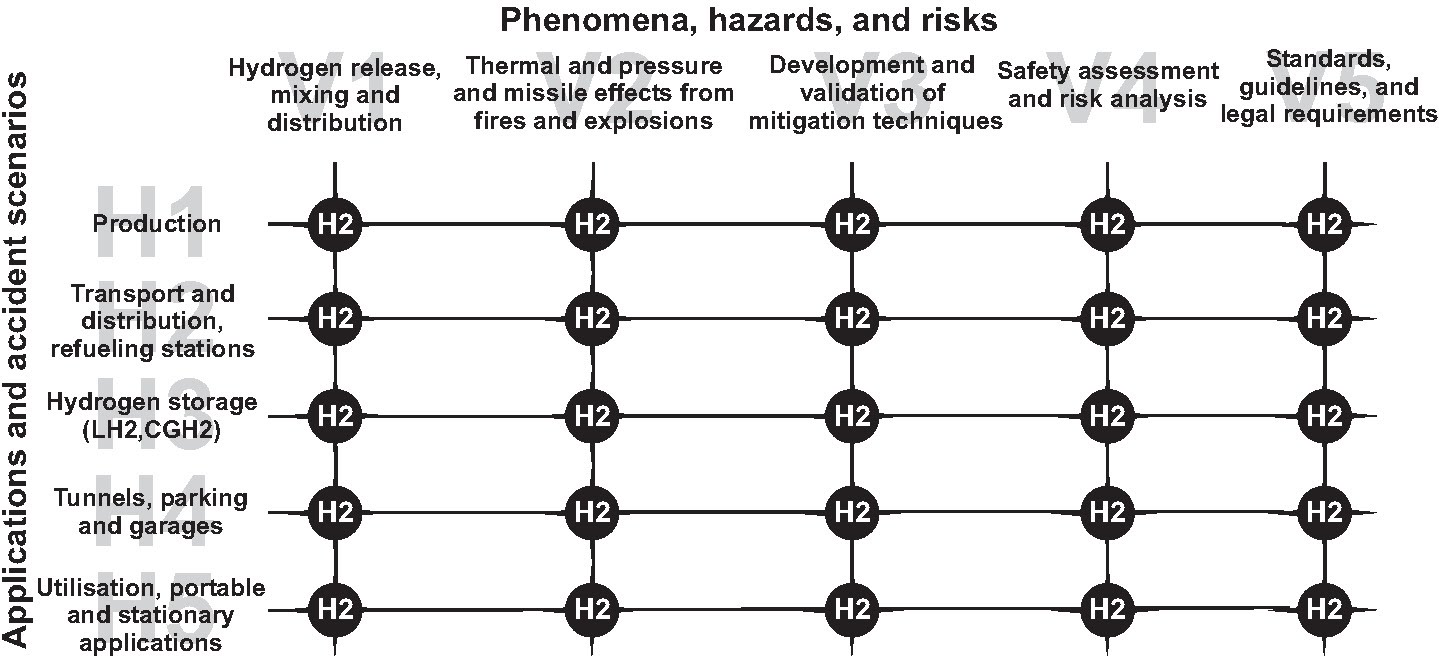 |
| Figure 1: The HySafe Activity Matrix |
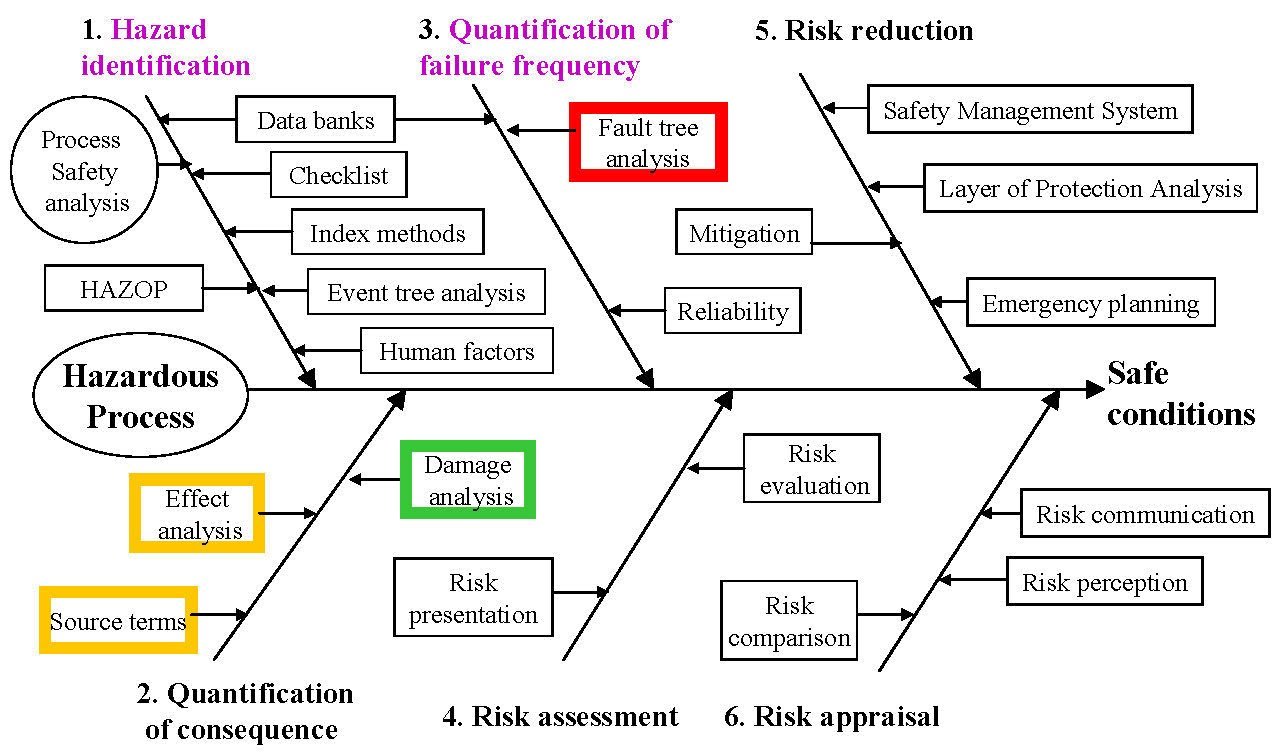 |
| Figure 2: The Risk Analysis Fishbone Diagram |
COURSE TITLE
[Return to Table of Contents]
RISK AWARENESS HYDROGEN SAFETY
|
DATE, TIME AND VENUE
Tuesday 12 November 2019 Time: 08:30 - 15:30 Pulse Hall 3, Building Number 33 Delft University of Technology Landbergstraat 19, 2628 CE Delft The Netherlands HOSTED BY The Royal Netherlands Navy Delft University of Technology Programme Director: KLTZ AWT Niehof, LLM Email: AWT.Niehof@mindef.nl Course Director: Drs Ing JMM Bruijnen, MSc Chairman Organizing Committee: Ir T Woudstra, MSc |
Picture: Naval Base Den Helder
|
PROGRAMME
Note: All participants shall receive a Certificate of Attendance on behalf of
the Commander of the Royal Netherlands Navy.
Note: All participants shall receive a Certificate of Attendance on behalf of
the Commander of the Royal Netherlands Navy.
| 08:30-09:00 | Welcome and registration | |
| 09:00-09:05 | Opening | Arend-Willem Niehof |
| 09:05-09:30 | The Hydrogen Drone Project Link to movie |
Arend-Willem Niehof |
| 09:00-10:30 | Safety Aspects of Hydrogen as an Energy Carrier Link to presentation |
John Bruijnen |
| 10:30-11:00 | Refreshment break | |
| 11:00-11:30 | Fly-off and Land-on: Safety and Risks |
Bart Remes |
| 11:30-12:30 | Deflagrations and Detonations: Phenomenology and Dynamics Link to presentation |
Arief Dahoe |
| 12:30-13:30 | Lunch | |
| 13:30-14:30 | Fuel Cell Technology: Safety and Risks |
Aravind |
| 14:30-15:00 | First Responder Scenarios | John Bruijnen |
| 15:00-15:30 | Closing remarks and farewell |
BIOGRAPHY OF THE LECTURERS
KLTZ AWT Niehof, LLM - Arend-Willem Niehof is a Lieutenant-Colonel within the Royal Netherlands Navy. He is in charge of the NederDrone Programme.
Drs Ing JMM Bruijnen, MSc - John Bruijnen is a Hydrogen Safety Assurance Engineer within the Dutch Armed Forces. He has more than 30 years experience as an Operations HSE Engineer in the international energy industry with a track record on delivering HSE projects. John's expertise stems from extensive experience acquired within an International Oil and Gas Multinational where he established new methods pertaining to critical issues in safety-cases and Bow-Tie analysis to verify and improve safety standards. In the past three years he studied Hydrogen Safety Engineering in close cooperation with Dr Arief Dahoe. In his current role John supports HSE implementation plans pertaining to innovation projects within the Dutch Ministry of Defense.
Ir BDW Remes, MSc - Bart Remes is in charge of the Micro Air Vehicles Laboratory (MAVlab) at Delft Univeristy of Technology and engaged with the NederDrone Project in close cooperation with the Dutch Armed Forces. After obtaining an MSc in Aerospace Engineering (specialism Sustainable Engineering and Technology) he established the MAVlab in 2003. He was involved in the first Dutch BVLOS flight, design and construction of various Micro Air Vehicles, such as the DelftAcopter, the DelFly II and the DelFly Micro. All these Micro Air Vehicles have won multiple awards. In 2009 and 2018, these devices were included into the Guiness Book of Records as the Smallest Camera Airplane, DelFly Micro. In 2018 the DelFly Nimble featured on the cover of the September 14 issue of the Science Magazine. Besides Flapping Wing Micro Air Vehicles, he has initiated and worked on Hybrid Air Vehicles and the design of the smallest open source autopilot in the world, the Lisa S, a 2x2 cm device, based on the Paparazzi open source software. Other projects where Bart Remes played a significant role include Dutch UAS and RoboSwift.
Prof PV Aravind - Purushothaman Vellayani Aravind is the Professor of Energy Conversion at the University of Groningen and concurrently in charge of a research group at Delft University of Technology. He did his MSc thesis research at Delft University of Technology on Generation of Electricity and Heat using Biomass Gasification, Solid Oxide Fuel Cells and Micro Turbines and received his MSc degree from the University of Oldenburg (Germany). In 2007 he completed his PhD at Delft University of Technology with a thesis titled High efficiency energy systems based on biomass gasifiers, SOFCs with Ni/GDC anodes and gas turbines and thereupon continued to teach at Delft University of Technology. Prof Aravind is involved in supervision of research activities related to the development of fuel cell systems, electrochemistry of fuel oxidation at SOFC anodes, biomass gasifier / fuel cell systems, high temperature gas cleaning, and thermodynamic modelling of power plants. He teaches courses on fuel cell systems and thermodynamics of energy conversion. He supervises a group of 10 PhD students and several researchers/research students on topics related to fuel cells . He is a member of the International Energy Agency and acts as a member of the European Energy Research Alliance Joint Program on Fuel Cells and Hydrogen.
Dr AE Dahoe - Arief Dahoe is an Explosion, Hydrogen Safety and Combustion Scientist. He conducts scientific investigations into problems pertaining to explosion dynamics and hydrogen safety for a clientele comprising military establishments, research institutions and industrial corporations. Dr Dahoe obtained an MSc in Chemical Engineering (specialism Particle Technology and Fluid Dynamics), and, a PhD in Explosion Dynamics (Gas and Dust Explosions) from Delft University of Technology. Thereafter he continued to apply and extend his expertise at Delft University of Technology, Cambridge University, Eindhoven University of Technology, Ulster University, the European Network of Excellence HySafe, Wageningen University, and, within the Dutch Armed Forces. His research interests are in: fire and explosion hazards of hydrogen, gas and dust explosions, simulation of explosion dynamics, application of mitigation technologies, decay of turbulence in transient flows, specific forms of turbulent combustion modelling pertaining to gas and dust explosions, turbulence modification in the gas phase by a dispersed phase consisting of small particles, thermobaric weapons, nuclear weapons, flame retardants, application of pulsed electric fields to microbial food safety, and, the Applied Mathematics of Explosions (tensor analysis, least-squares gradient reconstruction in conjunction with stiff time integration). Dr Dahoe is the creator of World's First Higher Educational Programme in Hydrogen Safety (i.e. the MSc in Hydrogen Safety Engineering) and he coordinates the development of the International Curriculum on Hydrogen Safety Engineering for the European Commission.
Drs Ing JMM Bruijnen, MSc - John Bruijnen is a Hydrogen Safety Assurance Engineer within the Dutch Armed Forces. He has more than 30 years experience as an Operations HSE Engineer in the international energy industry with a track record on delivering HSE projects. John's expertise stems from extensive experience acquired within an International Oil and Gas Multinational where he established new methods pertaining to critical issues in safety-cases and Bow-Tie analysis to verify and improve safety standards. In the past three years he studied Hydrogen Safety Engineering in close cooperation with Dr Arief Dahoe. In his current role John supports HSE implementation plans pertaining to innovation projects within the Dutch Ministry of Defense.
Ir BDW Remes, MSc - Bart Remes is in charge of the Micro Air Vehicles Laboratory (MAVlab) at Delft Univeristy of Technology and engaged with the NederDrone Project in close cooperation with the Dutch Armed Forces. After obtaining an MSc in Aerospace Engineering (specialism Sustainable Engineering and Technology) he established the MAVlab in 2003. He was involved in the first Dutch BVLOS flight, design and construction of various Micro Air Vehicles, such as the DelftAcopter, the DelFly II and the DelFly Micro. All these Micro Air Vehicles have won multiple awards. In 2009 and 2018, these devices were included into the Guiness Book of Records as the Smallest Camera Airplane, DelFly Micro. In 2018 the DelFly Nimble featured on the cover of the September 14 issue of the Science Magazine. Besides Flapping Wing Micro Air Vehicles, he has initiated and worked on Hybrid Air Vehicles and the design of the smallest open source autopilot in the world, the Lisa S, a 2x2 cm device, based on the Paparazzi open source software. Other projects where Bart Remes played a significant role include Dutch UAS and RoboSwift.
Prof PV Aravind - Purushothaman Vellayani Aravind is the Professor of Energy Conversion at the University of Groningen and concurrently in charge of a research group at Delft University of Technology. He did his MSc thesis research at Delft University of Technology on Generation of Electricity and Heat using Biomass Gasification, Solid Oxide Fuel Cells and Micro Turbines and received his MSc degree from the University of Oldenburg (Germany). In 2007 he completed his PhD at Delft University of Technology with a thesis titled High efficiency energy systems based on biomass gasifiers, SOFCs with Ni/GDC anodes and gas turbines and thereupon continued to teach at Delft University of Technology. Prof Aravind is involved in supervision of research activities related to the development of fuel cell systems, electrochemistry of fuel oxidation at SOFC anodes, biomass gasifier / fuel cell systems, high temperature gas cleaning, and thermodynamic modelling of power plants. He teaches courses on fuel cell systems and thermodynamics of energy conversion. He supervises a group of 10 PhD students and several researchers/research students on topics related to fuel cells . He is a member of the International Energy Agency and acts as a member of the European Energy Research Alliance Joint Program on Fuel Cells and Hydrogen.
Dr AE Dahoe - Arief Dahoe is an Explosion, Hydrogen Safety and Combustion Scientist. He conducts scientific investigations into problems pertaining to explosion dynamics and hydrogen safety for a clientele comprising military establishments, research institutions and industrial corporations. Dr Dahoe obtained an MSc in Chemical Engineering (specialism Particle Technology and Fluid Dynamics), and, a PhD in Explosion Dynamics (Gas and Dust Explosions) from Delft University of Technology. Thereafter he continued to apply and extend his expertise at Delft University of Technology, Cambridge University, Eindhoven University of Technology, Ulster University, the European Network of Excellence HySafe, Wageningen University, and, within the Dutch Armed Forces. His research interests are in: fire and explosion hazards of hydrogen, gas and dust explosions, simulation of explosion dynamics, application of mitigation technologies, decay of turbulence in transient flows, specific forms of turbulent combustion modelling pertaining to gas and dust explosions, turbulence modification in the gas phase by a dispersed phase consisting of small particles, thermobaric weapons, nuclear weapons, flame retardants, application of pulsed electric fields to microbial food safety, and, the Applied Mathematics of Explosions (tensor analysis, least-squares gradient reconstruction in conjunction with stiff time integration). Dr Dahoe is the creator of World's First Higher Educational Programme in Hydrogen Safety (i.e. the MSc in Hydrogen Safety Engineering) and he coordinates the development of the International Curriculum on Hydrogen Safety Engineering for the European Commission.
